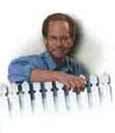
Long ago, before the trolleys, a seed fell in the rich dark earth of these rolling hills. A tender shoot; a sturdy slender sapling; a gawky adolescent, then a confident adult climbing up, arms open to the sun. When it still was young a house was built next to its branches. Decades later, its lower portion was enclosed in a stone wall. Still it grew. And then one day we all realized it was the arboreal equivalent of an old man who died in the TV room during “Wheel of Fortune,” and no one noticed until the next shift change, whereupon the man was eulogized with prose as mawkish and pretentious as the words you have just read. “That tree’s dead,” a visitor noted a week ago. I looked up. It was always scrawny and relatively limbless; the profusion of trees at Jasperwood meant it had long ago dropped its lower branches, concentrating its photosynthetic enterprise at the top. But the top was brown and thin. Dead he was. He’d have to come down. A neighbor noted that they’d hired someone to take out a big tree in their backyard. It cost three grand. That’s a MacBook Pro. I want a MacBook Pro. I cannot justify a MacBook Pro. But if I had a time machine, I would go back to the early years of Jasperwood, when the land had been divided into commercial plots and the rude roads scraped through the valley; I would have found that Hitler tree, and pulled it out. And every other sapling in the vicinity, just to be safe. I’ve seen Terminator. You have to take out all the Sarah Connors. But of course I don’t have a time machine, so I have a big tall dead tree – at the top of a hill. Many years ago the previous owners took out a giant tree on the hill, something I know because of the trauma the lawn still bears. They reseeded with a different kind of grass, so I still see the tracks of the machine, the round stump-plug. I imagined similar violence would be done this time. But: can’t have it topple over and take out the bedroom. I checked the phone book, sought out the best tree-care specialist (translation: first one with the biggest ad) and asked them to come by, make a bid. They stuck the bid in the door. Included was a sheaf of photocopied documents: state licenses, insurance riders, all sorts of reassuring and inscrutable materials duly notarized. And, of course, the bid. I opened it up and skipped to the bottom line. $310. I read it again; I made sure they’d chosen the right tree. Three hundred and ten dollars. By the peculiar logic of the male mind, I was now free to buy a MacBook Pro. It's like I just found $2700 on the sidewalk! That was the height of excitement on Friday. The weekend, necessarily, paled by comparison, especially since I did not buy the MacBook Pro. But it was grand fun nevertheless. We had some people over on Saturday – as opposed to centaurs or beetles, I guess – and the kids formed one of those impromptu tribes capable of self-amusement until they passed out from sugar-shock and exhaustion. The adults sat outside and addressed adulty matters, like how much we all fargin’ hated that fargin’ Calliou. A grand evening. Wife and child collapsed after the dishes were done – my wife had been cooking and grilling since about 4 AM – but I had excess vim, so I watched some movies. Finished “Lady from Shanghai,” another lurid fever-dream Orson Welles movie, this time in the noir vein; Rita Hayworth, blonded up for the role, appears to be slathered with radium in the noctural scenes, so much does she glow; the ferret-faced lawyer villain was familiar as Mr. Bernstein from “Citizen Kane.” Upon checking imdb, I learned he was a rather young man when he did Kane, and later killed himself because he feared he was going blind. It’s a fascinating mess of movie. Then I polished off “Pacific Heights,” because it had Michael Keaton, and he’s one of my favorite actors, and “Pacific” reminds you that everything that makes him a great protagonist makes him a great villain. I had forgotten the rest of the cast, though – the early scenes present Matthew Modine (“Look at me! I can grin!”) and Melanie “chunks o' dumb” Griffith, which was almost enough to make me flee. Then bed. Sunday I drove around town on errands listening to old Dragnet radio shows. There’s nothing on the radio on Sundays. Even if there was, I wouldn’t listen to it. Day of rest, and all that. I’ve been listening to a lot of the XM radio comedy channel, and most of the time I’m not laughing. I may be laughing inside, but rarely does any laughter make it to my face. It’s different when you’re in a club with six gin fizzes under your belt, I suppose; that would eplain the riotous reaction most of the comics get. Richard Lewis, for example – nothing he said was particularly funny, but he was a Hot Comic; it was His Time, and the exasperated nervous man pacing while hunched bit was fresh and new. (Now, of course, it’s the Routine From Hell.) With a few exceptions, the routines are characterized by vulgarity and hostility. By the former I don’t mean “naughty words and/or subject matter,” I mean inarticulate assemblages of F-bombs and explicit sexual travelogues shouted out at the top of the comic’s lungs, and by the latter I mean a naked contempt for anything that did not involve sitting in front of the TV without a bowl of Fritos in one’s lap. The personas all blend together; the easy disdain turns into a curdled smear. Moms Mabley they ain’t. It’s much different from the comics of the 40s, for example – they had simple personas with one or two hooks (cheap, acid-tongued, loser, braggart, etc.) That didn’t make them funnier. Most of the old stuff leaves me colder than the modern routines. When you hear an old network radio routine, the audience is the one part that seems truly foreign. They roar at lines you could see coming a mile away. The lines sent telegrams the night before telling you when they’d be in. It almost seems like a mutually beneficial pretense: the comic pretends to make a joke, the audience pretends to be amused. The general result is the impression of hilarity and relaxation. No form of entertainment is as perishable as comedy. Even the Steve Martin routines, regarded in my youth as confoundingly brilliant, now seem strained and contrived. Why? Because they spawned so many imitators, and we’re used to the way he constructed his jokes, or because the humor came less from the joke itself than the new juxtapositions he invented? Like all discussions that analyze comedy, this is absolutely laugh-free, isn’t it. Well. If you like your religion explained and gently tweaked by a man with a good deal of makeup, this Eddie Izzard clip may be amusing. I’d heard of him for years, but never actually heard him until I fould this YouTube clip. Not what I expected – mild and genial, really. (Occasional bad language warning, if that ruins it for you.) That’s what got me thinking about the topic in the first place - here's a chap in makeup having a go at religion, a concept many would find offensive, but compared to the foul shouters on the XM channel, it's mild. Why? Because he's not an idiot, which goes a long way. And now I’m done – up very early tomorrow, and lots of work this week. New Match, new Quirk. Thanks for coming; see you tomorrow.
|
||||||||||||||||


